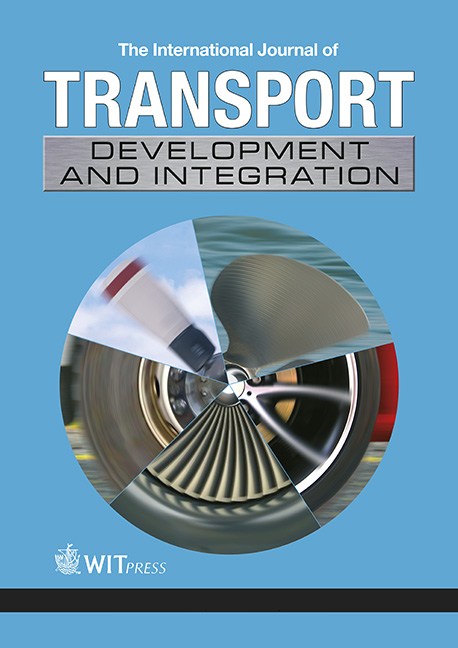Do parking fees affect commuting choices of staff and students on a university campus?
Price
Free (open access)
Volume
Volume 2 (2018), Issue 2
Pages
12
Page Range
189 - 201
Paper DOI
10.2495/TDI-V2-N2-189-201
Copyright
WIT Press
Author(s)
REBECCA J. SARGISSON
Abstract
Many initiatives have been implemented in an attempt to reduce traffic congestion and to encourage more sustainable commuting choices, however, rarely has before–after research been undertaken to measure the effect of introduction of such initiatives on commuter attitudes or behaviour. The University of Waikato, New Zealand, introduced parking charges for approximately 14,000 staff and students on their main campus in 2016, but not on a satellite campus in another city. A multi-method approach including questionnaires, naturalistic observation and photo-voice methodologies was used to assess the impact of parking fees on commuting attitudes and behaviour of staff and students. The heavy reliance on car travel was undiminished after the introduction of parking fees. Commuters still arrived by car, but more parked off-campus or became willing to pay parking fees after they were introduced. There was no increase in bus travel or cycling after the introduction of parking fees. Strategies to decrease car commuting to university campuses include higher parking charges, removing any ability to pay in advance for parking, reducing the availability of free parking nearby, subsidizing bus travel for staff and students, improving cycle and pedestrian access and related facilities, promoting the health benefits of active transport, policies that encourage students to spend more time on campus, ensuring that bus schedules align with lecture times and provision of student housing on or near campus.
Keywords
attitudes, behaviour, commuting, observation, parking fees, questionnaire, staff, students, sustainability, university




